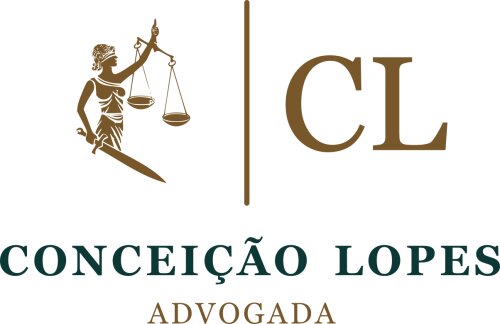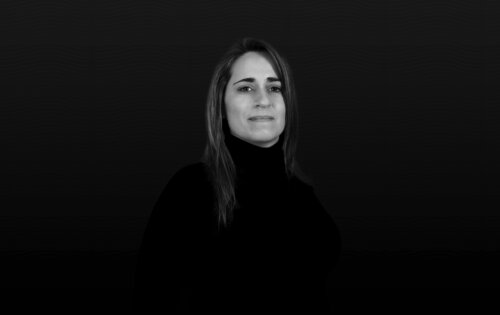Best Family Lawyers in Portugal
Share your needs with us, get contacted by law firms.
Free. Takes 2 min.
Free Guide to Hiring a Family Lawyer
Or refine your search by selecting a city:
List of the best lawyers in Portugal
About Family Law in Portugal
Family law in Portugal is designed to address the legal matters and issues that arise within family relationships. The Portuguese legal system provides a comprehensive framework for dealing with marriage, divorce, child custody, inheritance, and other familial matters. The Judicial Organization Law ensures the protection of family rights and aims to facilitate amicable solutions in familial disputes when possible. Family law in Portugal is influenced by both the Roman legal tradition and modern European legal standards and involves specific courts that oversee family cases.
Why You May Need a Lawyer
There are numerous situations where individuals might require legal assistance in the field of family law in Portugal. These include:
- Divorce or legal separation proceedings
- Child custody and visitation rights disputes
- Alimony and child support issues
- Adoption processes
- Negotiating pre-nuptial agreements
- Understanding inheritance rights and contesting wills
- International family law issues, such as cross-border custody disputes
Seeking the assistance of a lawyer can ensure that your rights are protected and that you navigate complex legal processes effectively.
Local Laws Overview
Family law in Portugal is governed by several key legal documents, including the Portuguese Civil Code and various family-specific legislation. Below are key aspects of these laws:
- Marriage and Divorce: Portuguese law recognizes both civil and religious marriages, and the process of divorce can be obtained by mutual consent or through litigation.
- Child Custody: The welfare of the child is the primary consideration in any custody decision. Both parents are generally encouraged to play an active role in the child's upbringing.
- Alimony and Child Support: These are determined based on the needs of the child and the financial capacity of the non-custodial parent.
- Adoption: Adoption procedures require thorough background checks and are intended to ensure the best interests of the child.
- Inheritance: Portugal follows a forced heirship regime, meaning certain relatives are legally entitled to a portion of a deceased person's estate.
Frequently Asked Questions
What is the minimum age for marriage in Portugal?
The legal minimum age to marry in Portugal is 18 years. However, individuals aged 16 and 17 can marry with parental consent.
How is property divided in a Portuguese divorce?
Property division in divorce depends on the marital property regime chosen at the time of marriage. Typically, regimes include community property, separate property, or an agreed-upon arrangement stipulated in a prenuptial agreement.
Can same-sex couples marry in Portugal?
Yes, same-sex marriage has been legal in Portugal since June 2010.
How long does a divorce process take in Portugal?
The duration of a divorce process can vary. A divorce by mutual consent can be relatively quick, often taking a few months, while a contentious divorce can take much longer, depending on the complexity of issues involved.
What are the rights of grandparents in visitation matters?
Portuguese law recognizes the rights of grandparents to maintain contact with their grandchildren, and courts can grant visitation rights if it serves the child's best interests.
Do unmarried parents have equal rights over their children?
Yes, both unmarried parents share equal parental responsibilities and rights over their children.
How can I contest a will in Portugal?
Contesting a will typically involves proving issues such as lack of legal capacity, undue influence, or failure to comply with legal formalities. Legal assistance is recommended for such cases.
What is required to adopt a child in Portugal?
Prospective adoptive parents must meet several conditions, including being at least 25 years old and maintaining a stable family environment. The adoption process is thorough and involves significant evaluation.
Is mediation mandatory in family disputes in Portugal?
Mediation is not mandatory, but it is encouraged as a means to resolve disputes amicably and is often considered in family courts as a preliminary step.
How is child custody decided if parents live in different countries?
International custody disputes typically involve international treaties, such as the Hague Convention, to determine jurisdiction and enforce custody agreements. It is advisable to seek specialized legal counsel in these cases.
Additional Resources
For further assistance and information, consider reaching out to the following resources in Portugal:
- Portuguese Bar Association (Ordem dos Advogados)
- Family and Minors' Court (Tribunal de Família e Menores)
- Directorate-General for Reintegration and Prison Services (Direção-Geral da Reinserção e dos Serviços Prisionais), which offers mediation services
- Consumer Directorate General, which provides template contracts and legal advice on family consumer matters
Next Steps
If you require legal assistance in family matters, consider taking the following steps:
- Identify the specific family law issue you are facing (e.g., divorce, custody, inheritance).
- Gather all relevant documentation and evidence pertinent to your case.
- Seek recommendations for legal professionals specialized in family law.
- Contact a family law attorney to schedule a consultation and discuss your case.
- Prepare a list of questions and concerns to address during your consultation.
- Follow through with the legal counsel provided and keep informed about the progress of your case.
Obtaining legal assistance can ensure a more secure and informed resolution to your family law matters in Portugal.
Lawzana helps you find the best lawyers and law firms in Portugal through a curated and pre-screened list of qualified legal professionals. Our platform offers rankings and detailed profiles of attorneys and law firms, allowing you to compare based on practice areas, including Family, experience, and client feedback.
Each profile includes a description of the firm's areas of practice, client reviews, team members and partners, year of establishment, spoken languages, office locations, contact information, social media presence, and any published articles or resources. Most firms on our platform speak English and are experienced in both local and international legal matters.
Get a quote from top-rated law firms in Portugal — quickly, securely, and without unnecessary hassle.
Disclaimer:
The information provided on this page is for general informational purposes only and does not constitute legal advice. While we strive to ensure the accuracy and relevance of the content, legal information may change over time, and interpretations of the law can vary. You should always consult with a qualified legal professional for advice specific to your situation.
We disclaim all liability for actions taken or not taken based on the content of this page. If you believe any information is incorrect or outdated, please contact us, and we will review and update it where appropriate.
Browse family law firms by service in Portugal
Portugal Attorneys in related practice areas.
Browse family law firms by city in Portugal
Refine your search by selecting a city.
















